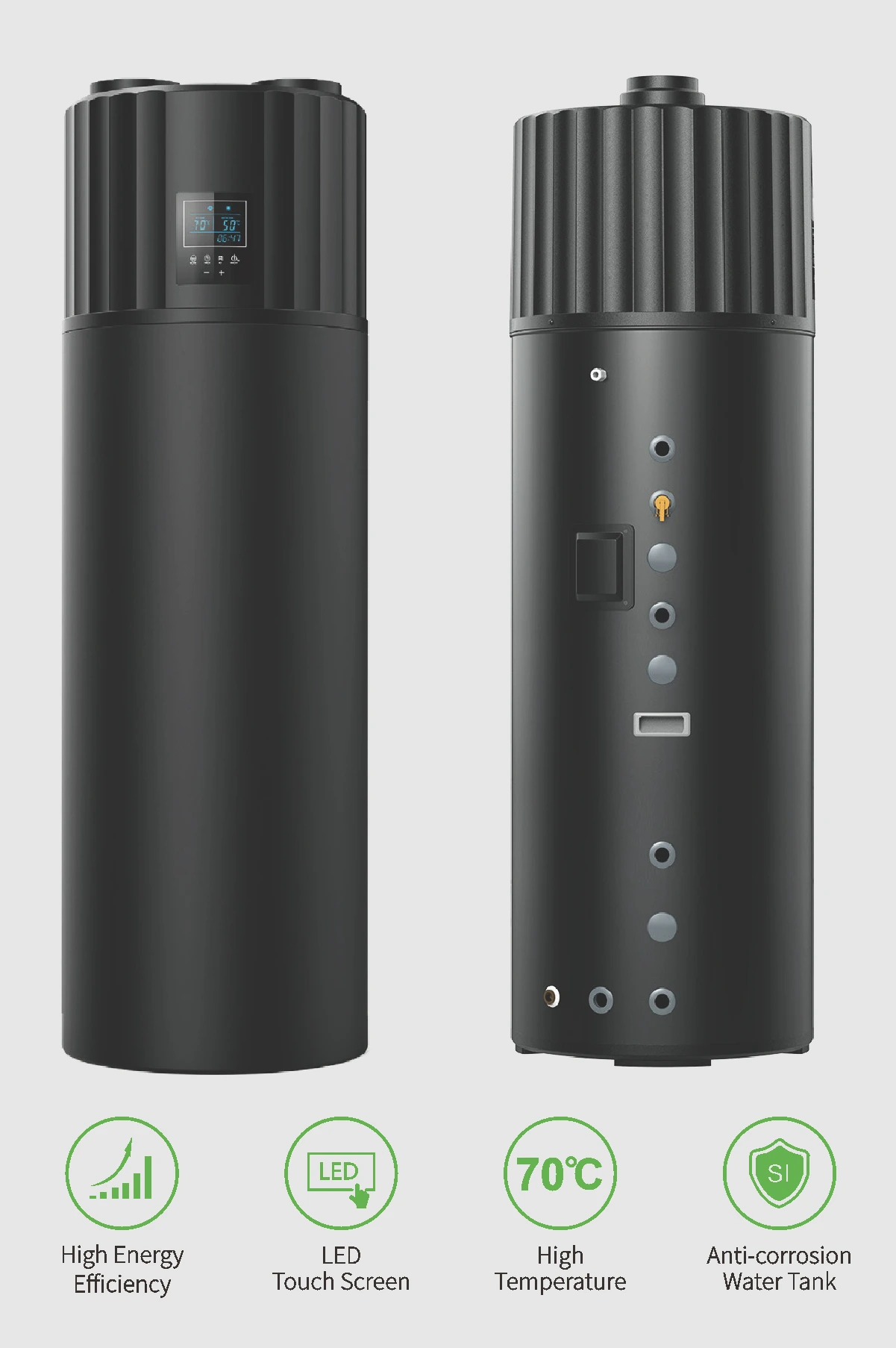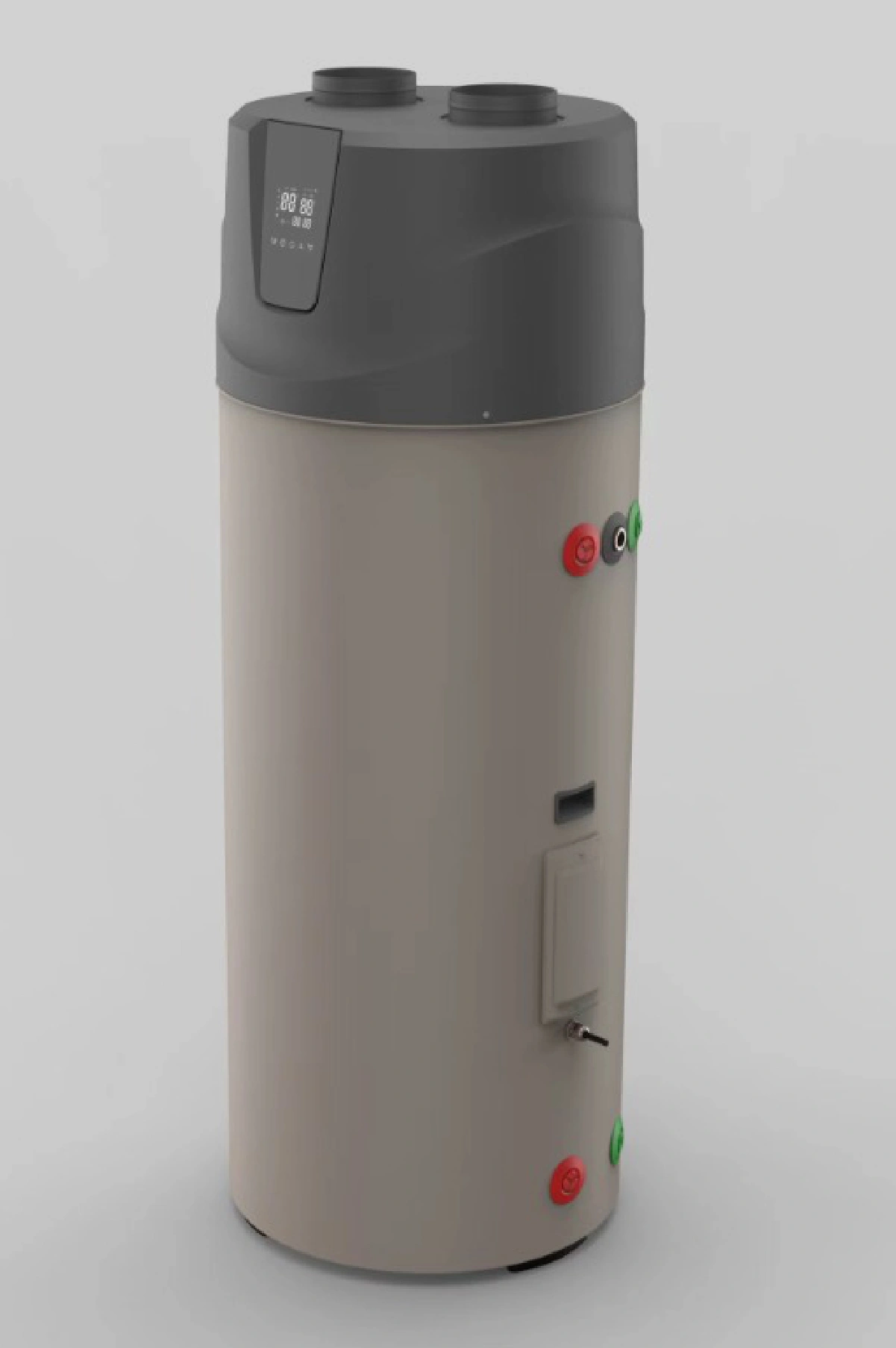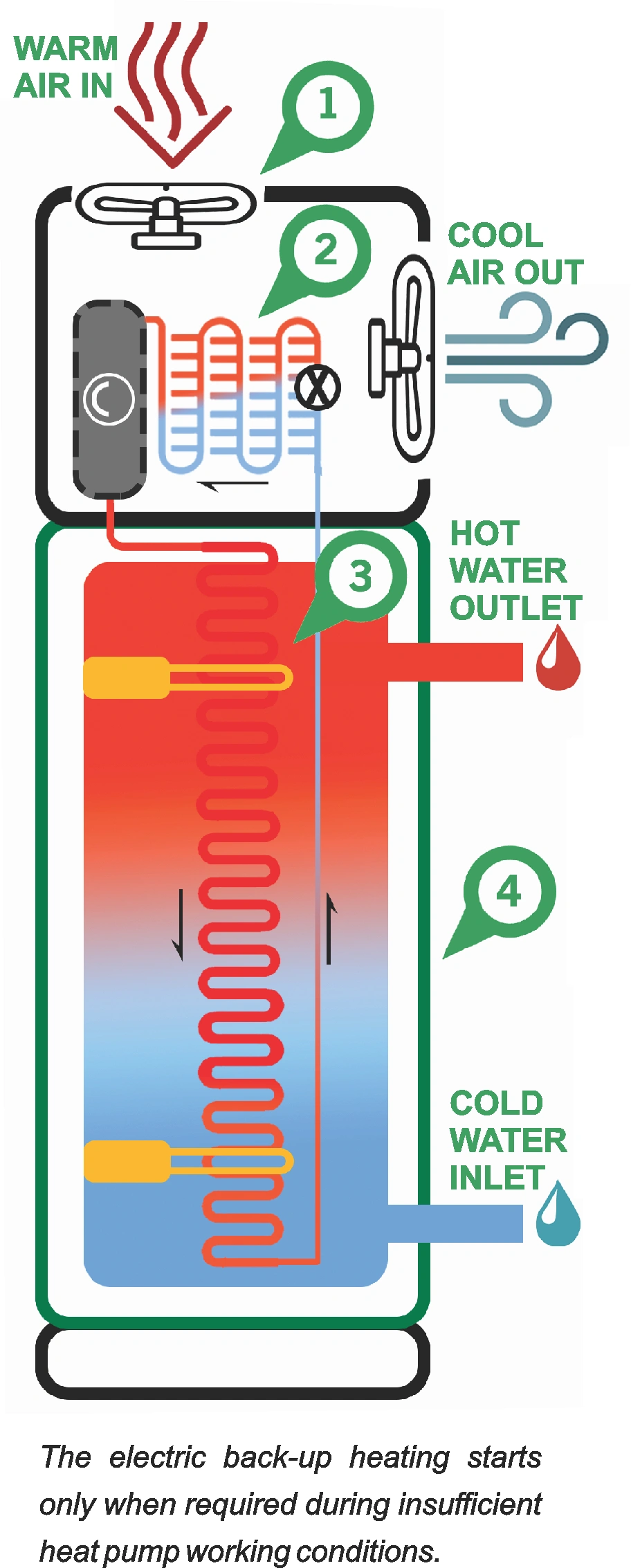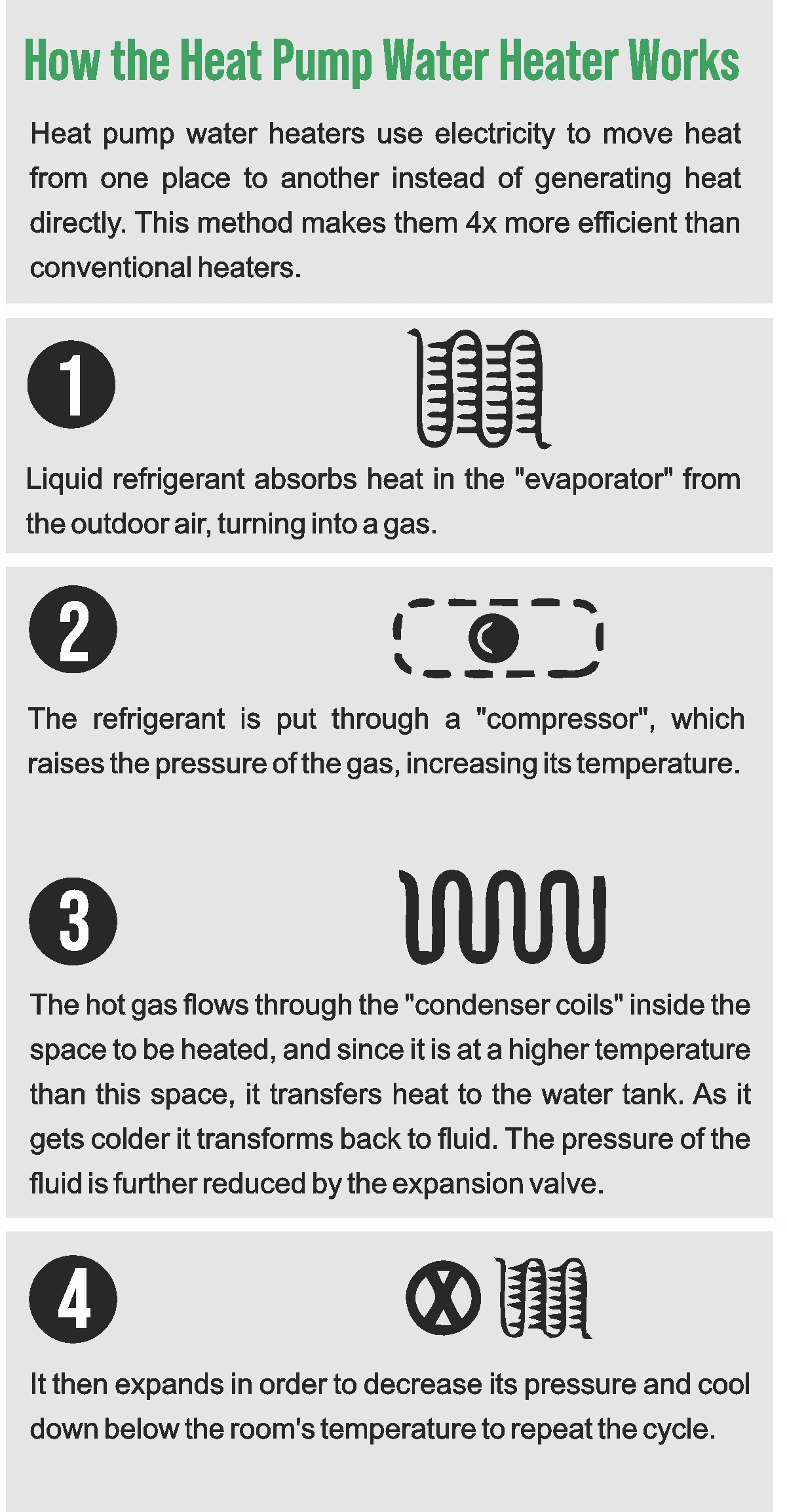Would you like to learn more about our all-in-one heat pump water heaters?
Heat Pump Water Heater in Kenya - Efficient Hot Water Solutions with Mayu Solar
Heating water accounts for one of the largest energy expenses in most households, often coming second only to space heating. Traditional electric or gas water heaters consume a significant amount of power, leading to rising monthly utility bills and increased environmental strain.
By switching to a modern heat pump water heater in Kenya, homeowners can enjoy a far more efficient and eco-friendly solution. These advanced systems draw heat from the surrounding air and transfer it to the water, using far less electricity than conventional methods. Not only does this help you reduce overall energy consumption, but it also ensures long-term savings on utility costs while contributing to a greener and more sustainable future.
How a Heat Pump Water Heater Works
A heat pump water heater is an energy‑efficient hot water heater that heats water by moving heat from the surrounding air into the tank instead of generating heat directly. By transferring existing heat, a heat pump water heater can be up to four times more efficient than a standard electric hot water heater, helping cut energy bills and reduce carbon emissions.
Step-by-step process
Heat absorption
The heat pump water heater uses a fan to draw in ambient air across an evaporator coil filled with refrigerant, which absorbs heat and evaporates into a gas.
Compression
The gaseous refrigerant is compressed, raising its pressure and temperature to create hotter gas for efficient water heating.
Heat transfer
The hot refrigerant circulates through condenser coils wrapped around the hot water heater’s tank, releasing heat into the water; as it cools, it condenses back to a liquid.
Cycle repeat
The liquid passes an expansion valve, dropping in pressure and temperature, and returns to the evaporator to absorb heat again.
Hybrid backup
During heavy demand or cooler conditions, the hot water heater’s electric resistance backup switches on automatically to maintain a steady supply of hot water, ensuring consistent performance.
Why Choose a Hot Water Heat Pump?
When it comes to supplying hot water at home, many households still depend on traditional electric water heaters. While they get the job done, these systems are notorious for high energy consumption, which often leads to increased electricity bills and a greater environmental impact.
A hot water heat pump offers a smarter and more sustainable alternative. Instead of generating heat directly from electricity, it works like an energy-efficient refrigerator in reverse, extracting heat from the surrounding air and transferring it into the water. This innovative technology uses significantly less energy compared to conventional systems while delivering the same level of hot water comfort for your home.
By upgrading to a modern heat pump water heating system, you can:
Reduce household energy use by up to 60-70% compared to standard electric systems.
Lower your power bills through long-term energy savings.
Minimize greenhouse gas emissions, making your home more eco-friendly.
This makes hot water heat pumps not only cost-effective but also a responsible choice for protecting the environment and ensuring reliable hot water supply year-round.
Perfect for Apartments and High-Rise Buildings
Heat pump water heaters are ideal for high-rise buildings and apartments where roof space for solar systems is limited. They are also an excellent replacement for traditional geysers, cutting water heating costs by up to 70–80%.
Mayu Solar All-in-One Heat Pumps – 200L & 300L
Explore Mayu Solar’s high-performance All-in-One Heat Pumps water heater available in 200-liter and 300-liter models. Designed for efficiency, reliability, and long-term savings, these units offer a sustainable solution for all your hot water needs.
Upgrade to reliability with the all in one heat pump and simplify installation while cutting hot‑water energy costs
Frequently Asked Questions about Heat Pump Water Heaters
A heat pump water heater in Kenya extracts heat from ambient air and transfers it to water using a refrigerant cycle (evaporator, compressor, condenser), delivering high efficiency compared to electric geysers. It uses electricity primarily to move heat, not generate it, which cuts energy use substantially.
Yes, it suits homes, apartments, hotels, gyms, and restaurants because it provides consistent hot water with lower operating costs, especially in Kenya’s warm to moderate climates where ambient air temperatures support efficient operation.
The unit should be installed in a well‑ventilated space with sufficient air volume, drainage for condensate, access for maintenance, and proximity to hot‑cold plumbing and power supply; outdoor or semi‑outdoor plant areas are ideal in Kenyan properties.
Most residential heat pump installations in Kenya are completed within a day after site assessment, with additional time for plumbing/electrical upgrades, commissioning, and owner training when integrating with existing hot water lines.
Depending on usage and climate, many systems achieve a coefficient of performance (COP) around 2–3+, often reducing electricity consumption for water heating by 40–70% compared to resistance geysers, leading to noticeable bill savings in Kenya.
Routine tasks include cleaning or replacing air filters, checking condensate drainage, inspecting anodes and tank insulation, and scheduling periodic servicing to verify refrigerant performance and controller settings for Kenyan operating conditions.
Look for certified heat pump installers who conduct a load assessment, size the tank and heat pump correctly, provide a clear bill of quantities, offer warranty and after‑sales support, and share references from local Kenyan projects.
Reputable installers in Kenya provide manufacturer warranties on tanks and compressors, workmanship guarantees on installation, and planned maintenance options to preserve efficiency and extend system lifespan.
We are leaders in Clean Energy Solutions
We are an EPC and O&M contractor with experience and capacity to support solar projects from inception, throughout the development and construction stages and for the complete lifetime of the plant. We are certified Solar Water Heating Contractors and solar power systems contractors, licensed by the Energy & Petroleum Regulatory Authority (EPRA).
8th Floor Suite A1, Golf View Suites, Wambui Road, Muthaiga, Nairobi
©2024 Manyur Technologies Ltd. All Rights Reserved.




